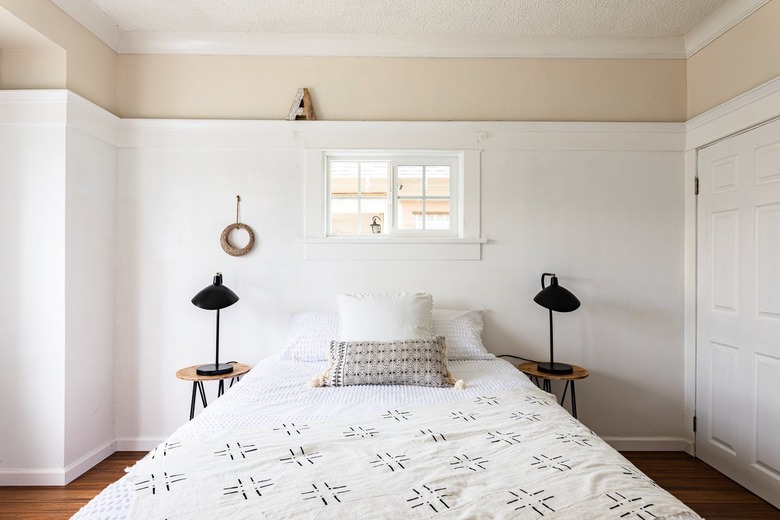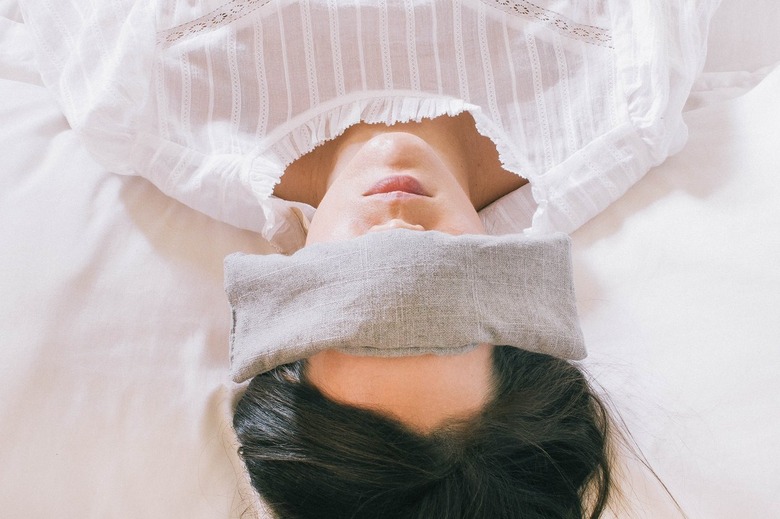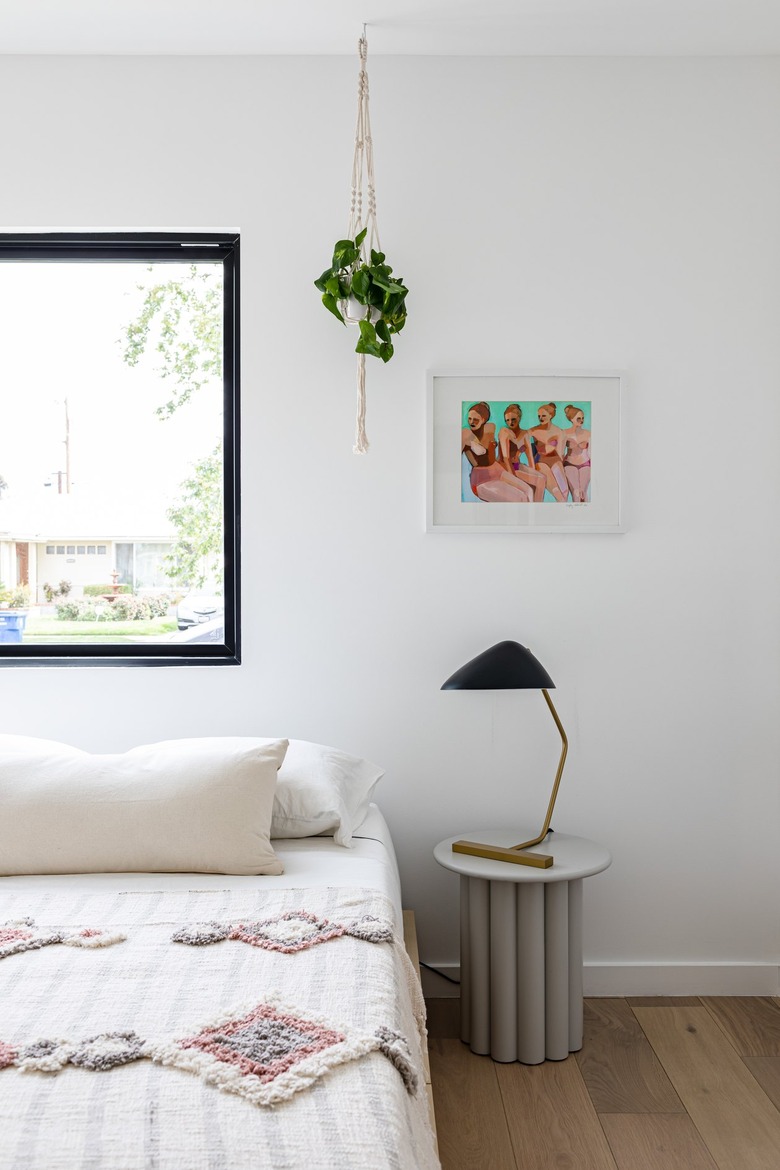7 Things Preventing You From Resting Well, According To The Experts
We may receive a commission on purchases made from links.
Are you unintentionally making it harder for yourself to get a good night's sleep? Is there something you should be doing differently in your bedroom? What about right before you hit the hay? To help us get some solid shut-eye, we reached out to sleep and dream psychologists with these questions. Their answers, fortunately, are giving us a ton of bedroom and bedtime inspiration.
According to sleep experts, these are the top mistakes you're making in your bedroom.
Mistake #1: Using the bedroom for non-sleep activities.
Mistake #1: Using the bedroom for non-sleep activities.
"Most people fail to turn their bedrooms into sleep-inducing environments," Dr. Daniel Barone, MD — associate medical director at the Weill Cornell Center for Sleep Medicine and medical advisor for sleep brand Molecule — tells Hunker. "By that, I mean: watching TV or using devices in bed, and using the bed for other activities beyond sleep or intimacy."
In other words, get your devices, work or homework, and workout gear out of the bedroom. If you like to watch TV before bed, do so in another area of your home — but make sure you're not watching the news or other stress-inducing programs. If you rely on your phone to wake you up, simply place it in a spot that's nearby, but far enough away from your bed so that it doesn't tempt you in the middle of the night.
Mistake #2: Sleeping in a noisy, warm, light-filled room.
Mistake #2: Sleeping in a noisy, warm, light-filled room.
Dr. Barone reveals that restorative sleep is achieved in a room that is quiet, dark, and cool, which are factors we can easily control. If your room doesn't get dark, try blackout curtains. If you're in a noisy area, consider trying a sound machine that plays white noise. If your room tends to run warm during the night, you can fix that with a noiseless fan or cooling bed sheets.
Mistake #3: Watching the clock when trying to sleep.
Mistake #3: Watching the clock when trying to sleep.
"It's hard not to look at the clock if waking up during the night is a normal occurrence, but looking at the time is not just a simple, neutral activity," sleep psychologist Dr. Sarah Silverman tells Hunker. "Not to mention, knowing the time usually leads to doing some math (e.g., I only slept two hours, and I have to be up in four!), and who wants to do math in bed?"
If you struggle with watching the time tick by while sleeping, consider removing all clocks from your bedroom. As long as you have an alarm set (away from the bed!), you should be good to go.
Mistake #4: Consuming certain substances before bed.
Mistake #4: Consuming certain substances before bed.
Dr. Silverman states that you shouldn't do the following right before bed: drink too much alcohol, drink too much water, use stimulants (caffeine, tobacco, nicotine, stimulating medications), consume cannabis (which can be relaxing at first, but later cause poor sleep), and eat spicy or heavy foods.
"A good rule of thumb: Allow a buffer zone/window of at least 2-3 hours before bed if engaging in any of the above," says Dr. Silverman. "Keep in mind, everyone is different and sensitivity levels vary."
Mistake #5: Working out before bed.
Mistake #5: Working out before bed.
You might think that a workout will help tire you out before bed, but Dr. Silverman reveals that this isn't the best idea. "A hardcore workout can raise overall core body temperature, which usually needs to drop a few degrees to facilitate sleep onset," she explains.
Just like with the foods and drinks you consume, you'll want to give yourself a window of 2-3 hours between your workout and sleep.
Mistake #6: Going to bed late or waking up too early.
Mistake #6: Going to bed late or waking up too early.
"The first mistake people make is going to bed too late and/or setting an alarm for earlier than their body wants to awaken," dream psychologist Dr. Deirdre Barrett, author of The Committee of Sleep and Pandemic Dreams, tells Hunker. "We go into REM (dreaming) sleep every 90 minutes, but each REM period lasts longer than the one before it. If you sleep four hours instead of eight, you aren't getting half your dream time, you're getting a quarter of it."
While this requires trial and error, you'll want to find a specific sleep schedule that works for you personally and allows you to get at least eight hours of rest.
Mistake #7: Worrying about anxiety dreams when trying to sleep.
Mistake #7: Worrying about anxiety dreams when trying to sleep.
Dr. Barrett explains that when people worry about having anxiety dreams, they tend to accidentally increase these nightmares. Instead, Barrett recommends that you visualize a dream you would like to have while sleeping. This can also help you cope with any worrisome thoughts that come up right before bed.


